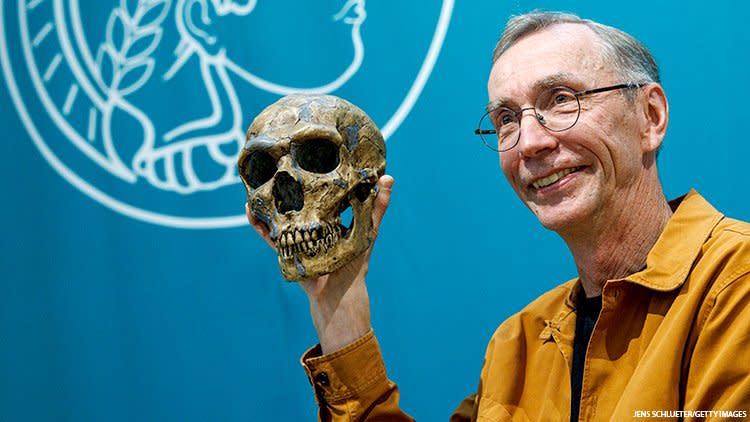Bisexual Geneticist Wins Nobel Prize for Studies of Ancient Human DNA

The 2022 Nobel Prize in Physiology or Medicine went to Swedish bisexual scientist Svante Pääbo. He is the director of the Max Planck Institute for Evolutionary Anthropology in Leipzig, Germany.
Pääbo won the award for his studies into the genetic makeup of extinct humans, including that of the Neanderthal. His research, which included finding genetic material from 40,0000-year-old bones, produced a complete Neanderthal genome and introduced the world to ancient DNA studies.
The research helped scientists understand the differences between modern human DNA and those human species that came before us. Beyond that, it also has helped to understand how those differences could impact modern human health.
In its announcement the Nobel Prize committee said, “Through his groundbreaking discoveries, Pääbo opened a new window to our evolutionary past, revealing an unexpected complexity in the evolution and ad-mixture of ancient hominins, as well as providing the basis for an improved understanding of genetic features that make us uniquely human.”
Two years ago, Pääbo and a colleague discovered that people with Neanderthal DNA had worse symptoms of the novel coronavirus than those who didn’t, the New York Times reports.
Neanderthals are our closest ancient relatives. Both Neanderthals and early modern humans lived in similar areas, and there is evidence that interbreeding happened. Non-African modern humans have about 1-4 percent of Neanderthal DNA, according to the Smithsonian.
The Swedish scientist’s studies into Neanderthal DNA also led him and his colleagues to investigate other human species and how genes have drifted from one set of relatives to modern humans.
Pääbo was born in 1955. He received his Ph.D. from Uppsala University in Sweden. His father, biochemist Sune Bergstrom, shared a Nobel Prize in 1982 for his scientific work.
In his 2014 book Neanderthal Man: In Search of Lost Genomes Pääbo opened up about being bisexual, according to The National. He wrote that he thought of himself as gay until he met Linda Vigilant, a primatologist and geneticist from the U.S. He explained that it was her “boyish charms” that attracted him.

